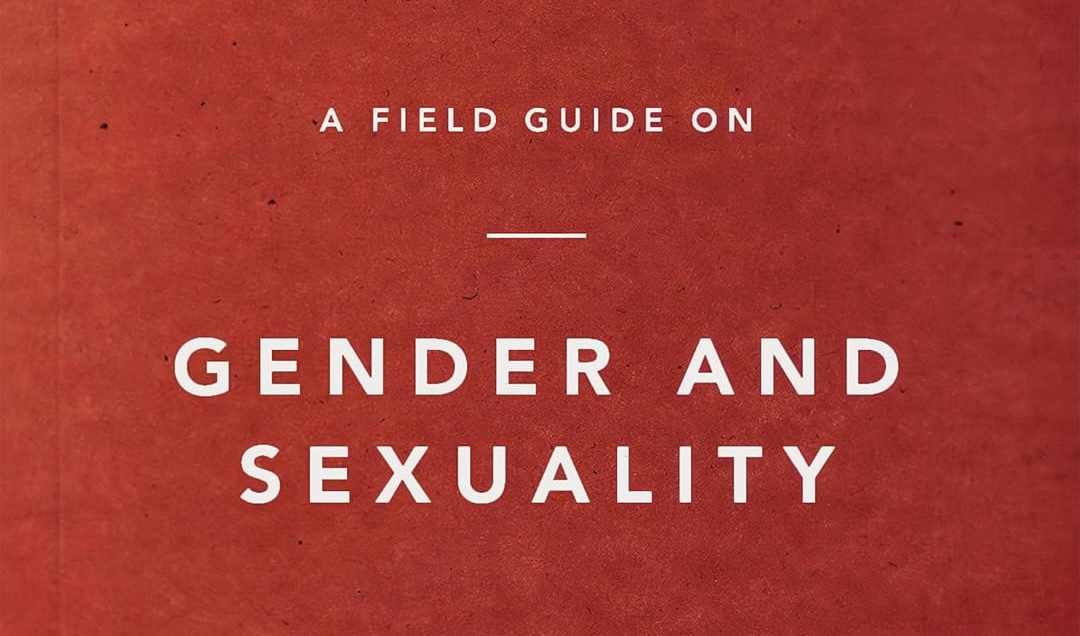God’s design for gender and sexuality is fixed and unchanging. The way he created us is the way he means for us to live. The instruction he provides in the Bible is all we need to understand his purpose and live it out in a way that honors and pleases him. The wisdom he provides in the Word is all we need to understand how he made us and how he intends us to express our sexuality. God has spoken and it falls to us to believe and obey.
Yet the world is confused about these matters and always has been. Such confusion varies from age to age and context to context, but what is universal is that every culture finds different ways to rebel against God and against his good design. Today’s confusion in the Western world—a confusion that inevitably impacts the church—centers around matters of identity. For that reason, matters of sex, gender, and identity are at the heart of a helpful new field guide published by Ligonier Ministries: A Field Guide on Gender and Sexuality.
A field guide is meant to offer a concise introduction and explanation to a topic or area of study, and that is what this one accomplishes. It explains what the Bible teaches about gender, sexuality, and identity, and does so by following a question and answer format. Its 28 questions and answers are divided into four broad categories.
It begins with “Being Human” and answers questions about being made in the image of God, about the purpose of sex, about the right to personalize an identity, and about the number of genders and the distinctions between them. It then advances to “Homosexuality and Transgenderism” where it answers whether same-sex attraction is a sin (or only acting on it), distinguishes between gender dysphoria and transgenderism, considers the term “gay Christian,” and tells whether Christians with same-sex attraction can expect their desires to diminish (or even transform) as they grow in sanctification.
In the third section, the questions turn to matters of “Events and Associations.” Can I attend a gay wedding? Can I attend the wedding of a Christian to a non-Christian? Is it acceptable to use a person’s preferred pronouns? How do we know whether something is a matter of conscience or a clear teaching of Scripture? The final section, “The Gospel and Love” offers hope for sexual sinners of all kinds, explains the nature of true compassion, and tells how to serve fellow Christians who are struggling with same-sex attraction. It covers all this in a concise format and a mere 112 pages.
Because the guide is written from the unified perspective of a particular ministry, it offers a lot of unambiguous and unapologetic “yes” and “no” answers. Yet these are always explained and defended from Scripture. There are areas of any discussion of these matters that begin to move from what the Bible clearly prescribes to matters where Christians may have some disagreements on the basis of conscience, and for this reason, I appreciate the section on conscience and this helpful guidance: “Something is a matter of conscience when it is not forbidden by Scripture explicitly or not forbidden implicitly by good and necessary deductions from Scripture.”
Yet almost by definition, people will disagree about whether a particular issue is forbidden in that way. Thus it would have been helpful to me if there had been a question that asked something like this: How should Christians relate to one another when they disagree about whether a particular issue is a matter of conscience or a biblical decree? At what point do we believe that another person is so wrong that we need to pull back from formal or informal associations? This, I think, is going to be one of the pressing challenges of the next few years. I believe the church will eventually come to be unified on most or all of these matters—our consciences will more and more come into line as we commit ourselves to the Scriptures and the work of the Spirit—but there will first be a time of some uncertainty. I long for us, as a church, to navigate that in-between time well.
Ligonier’s A Field Guide on Gender and Sexuality is a helpful, timely, and valuable resource and one that offers sound answers to urgent questions. It is priced very reasonably which makes it ideal to purchase in bulk and distribute widely. To young and old alike, it will prove a trusted guide to some of today’s most pressing issues.










